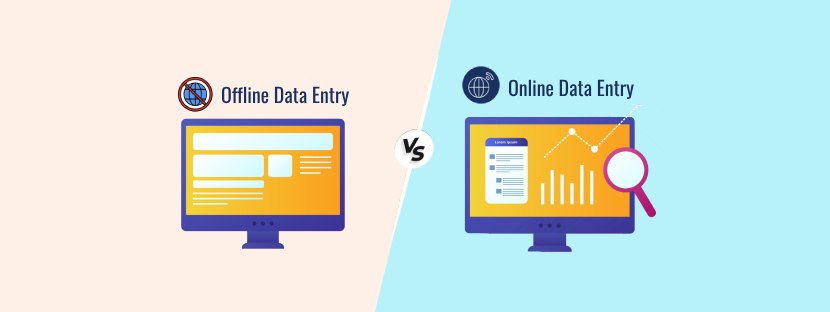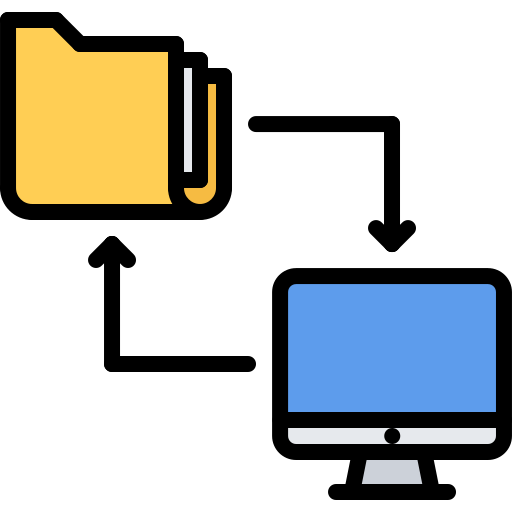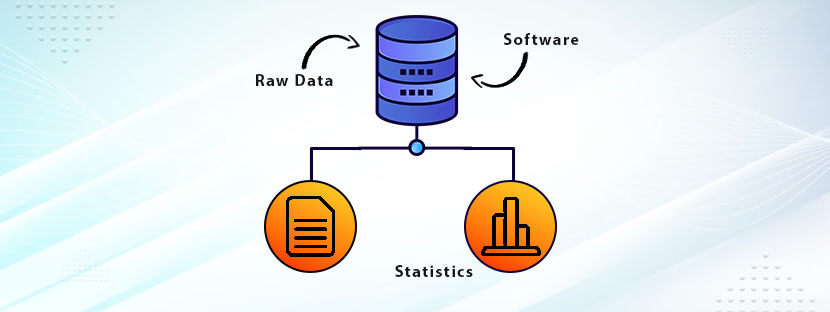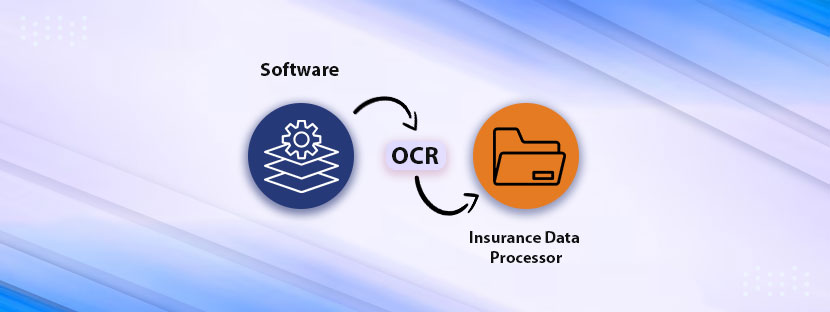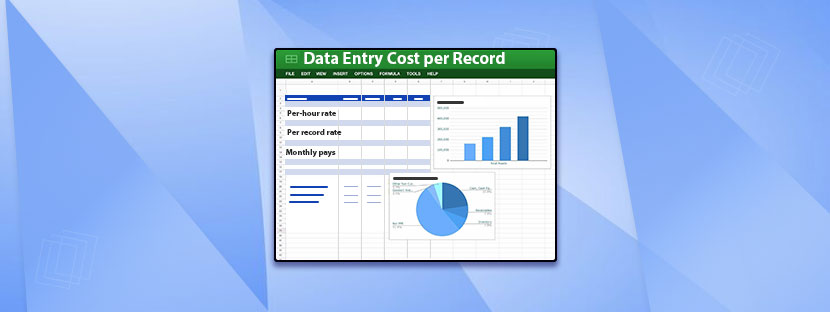What makes online and offline data entry practices different? Guess!
We know you’ll answer “internet connection”. Well, that’s correct but not a proper answer. You’ll find this answer in most of the search results. But, you must know there’s something deeper beyond this one-line answer.
Both the processes (online and offline data entry) have distinguished benefits. Thus, you can’t say one is better than another. Each process provides individual benefits to organizations. So, you need to choose what type of data entry process you need to handle your tasks.
Let’s address the common differences as well as similarities between online data entry and offline data entry in this blog.
Offline Data Entry
Putting data from physical or other formats into spreadsheets or any specialized software is a process and it’s called offline data entry. In most cases, the process of entering records is done without the presence of an internet connection. For this reason, the process got its name “offline”.
The most interesting fact about offline data capture and recording is it allows batch data processing. Instead of updating the data in real time, it provides a time break when you can re-verify your data. Hence, you can collect and process data in batches and enter it into the database later on.
Examples of offline data recording work:
Online Data Entry
Putting information into a computer system in real-time through digital interfaces comes under online data entry process. An Internet connection is necessary to perform this process as it directly syncs data to the cloud system. Interestingly, local data storage has no use in online record entries.
The best part about the online data entry process is it allows easy access to the database from anywhere. The data can be managed remotely from anywhere as there is no geographical barrier exists. All the data entered into the database would get updated in real time. Plus, there is no need to carry any extra storage at all. You can create online databases using the cloud technology and store your data permanently there.
Examples of online data entry work;
Difference Between Online and Offline Data Entry
| Factors Value | Online Data Entry | Offline Data Entry |
|---|---|---|
| Internet connection | Mandatory | Not Mandatory |
| Real-time update | Possible | Not possible |
| Data storage | Global/ Cloud | Local |
| Batch Processing | Not possible | Possible |
| Security strength | Vulnerable | Stong |
| Management | Easy | Little complex |
| Processing Speed | Fast | Moderate |
Sources of Offline Data Entry
It’s huge when it comes to sources for offline data entry. Data entry experts can take data from any offline sources and enter it into the database in this process. Using the manual data capture process, data experts take away data from paper documents, scanned documents, books, bills, and even online resources.
Sources of Online Data Entry
Anything available over the internet comes under the ambit of online data. Data entry experts take out data from different websites and record it into a database. One study found that almost 328.7 million terabytes of data are generated each day. Therefore, the possibilities of data entry are huge at present.
Offline Data Entry Preferability
From sectors like healthcare, insurance, etc to government or legal matters, the role of offline data entry is supreme. Entering records via the offline method provides greater control and overall security than the online method. These sectors always weigh security measures than any other super-advanced technology.
It’s more about flexibility
Due to the absence of an internet connection, the offline data entry process provides you with more flexibility. There’s no time restriction there as you can perform data entry tasks offline at any time. Further, the data you entered in the database will be verified much later on as offline projects are performed in batches. However, it also involves risk factors as the verification would happen much later.
Criteria to Choose What Suits You the Best
Predictably, online data entry is the preferable option among organizations. But, you need to strike a balance between both these processes. The choice of choosing between these two data entry processes must be taken after considering a few factors. Let’s discuss these factors here.
Factor 1: Do you need real-time data updates? If yes, you need to choose the online process
Factor 2: Do you need complete security of your data? For this, both processes are good but the offline process has more advantages. Your data would be 200% secure if you choose an offline data entry process.
Factor 3: Do you have a huge load of data entry tasks? Well, then you need to distribute the task into different segments and allot them to different data entry experts. All these tasks would only be possible via an online data entry process.
Factor 4: Do you want to process your data into batches? If yes, then you must go with the offline data entry process. Only this method allows you to process data into batches.
Let’s Wrap this Debate Up!
Both, online and offline data entry are good based on your specific requirements. If you choose offline as your circumstances suit that then it would be best for you. Remember, choosing a partner to outsource offline data entry services is more relevant here. You always choose a partner that fits your budget and completely satisfies your demands.

